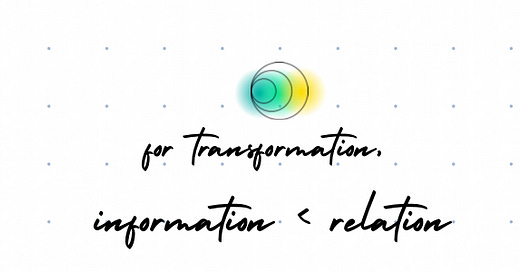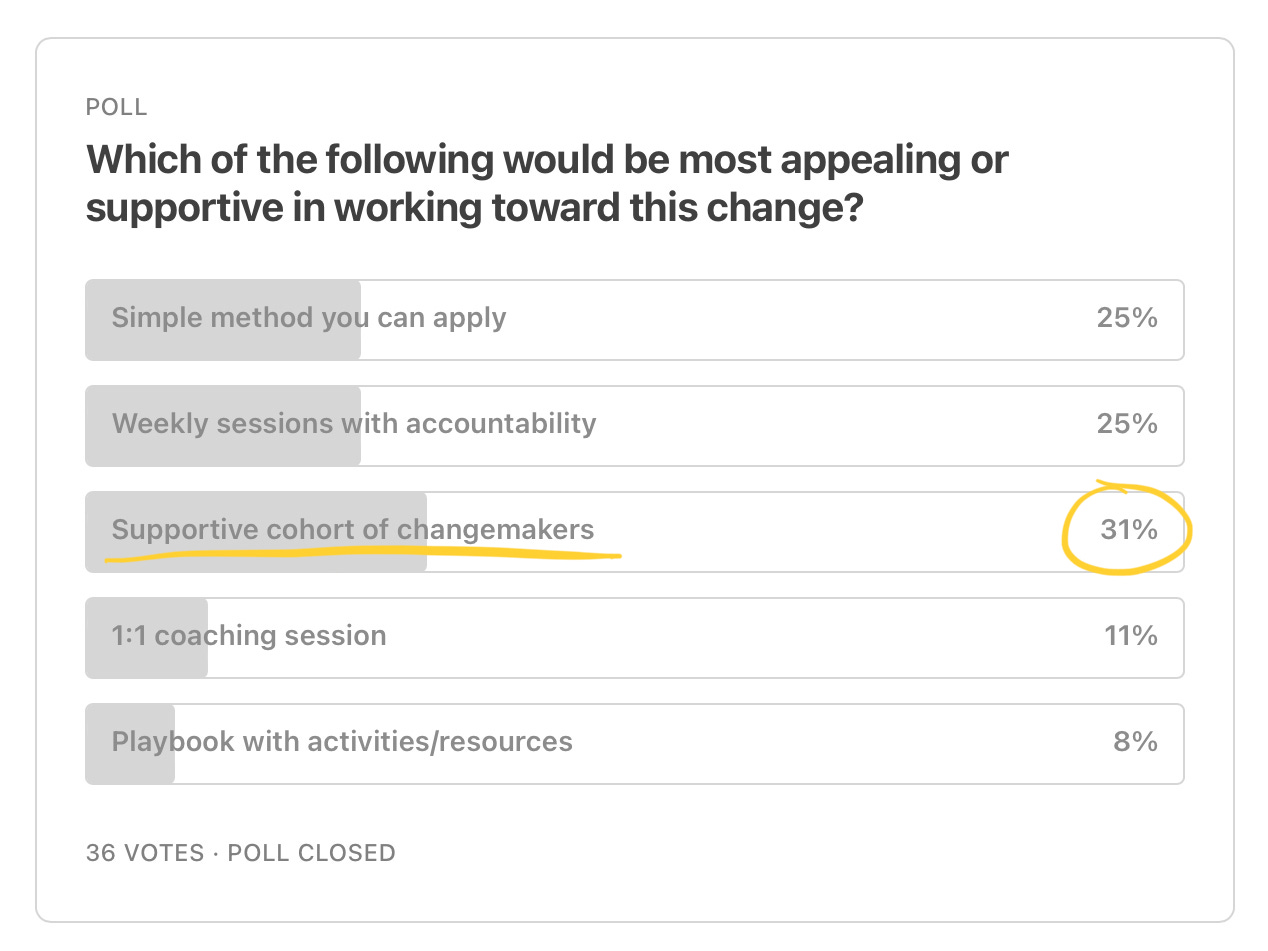First, big thanks to everyone who voted in last week’s polls—you’ve helped me take some important steps forward in preparing my upcoming course: Agents of Radiant Change aka ARC. (Sidenote: I’m not officially launching it till next week, but registration is unofficially open now for you wonderful people.)
One finding in particular stood out, though it was not a surprise:
31% of respondents said that a “supportive cohort of changemakers” would be the biggest draw for a course on leading change. More than a method (do this!), more than accountability (did you do it?), even more than a deep dive with a coach into your individual situation… you are craving community.
Leading change can be lonely work. Let’s do it together.
I feel that in my bones. Leading change can be lonely work. You might be the only person in your organization championing your particular innovation or transformation. It may feel like you’re pushing a boulder uphill, day after day. Even if you’ve engaged a squad of early adopters, it can seem like you’ve got no shot shifting a majority that’s settled into the status quo. (Psst… you do! You have more power than you know.)
That’s why we don’t do this work alone. We need to do it together… which is not always easy. For one thing, we have to find each other. Then, at least were in the U.S. where I live, we have to let go of the individualistic hero/leader narrative and embrace a more communal, collaborative strategy. That’s one of the paradigm shifts we’ll explore in ARC—co-creation being one of the 10 Truths of Radiant Change—not only in concept but in practice and through the program design itself.
As I talk to people about ARC, one of the questions I‘m asked most often is: “Why not make it a virtual, self-directed course? That would make it easy to scale and be less work for you.” That’s true, I suppose, but I’m more interested in impact than scale. I want people to emerge with a set of powerful tools and the confidence and conviction that they can indeed spark and sustain real change. And that comes to us in relationship.
On a personal level, I too crave more connection. I know it’s in community with other people that my own learning and development make the jump from linear to exponential. So it’s not more work for me to create cohorts of change agents—it’s more insight, more energy, more joy.
The transformational power of the collective is ancient wisdom. For 2600 years, Buddhist practitioners have “taken refuge” in the three jewels: the Buddha (one’s inner wisdom), the Dharma (teachings on the nature of reality) and the Sangha (a community of fellow practitioners). In this tradition, having a community of practice is even more important than having a teacher. This is because information doesn’t change us, but relationships do. And this is why in ARC, I’ll be right there with you, doing the work.
We’re in this together.






LOVE seeing this, Kristin!! I really believe that there is accountability in community.